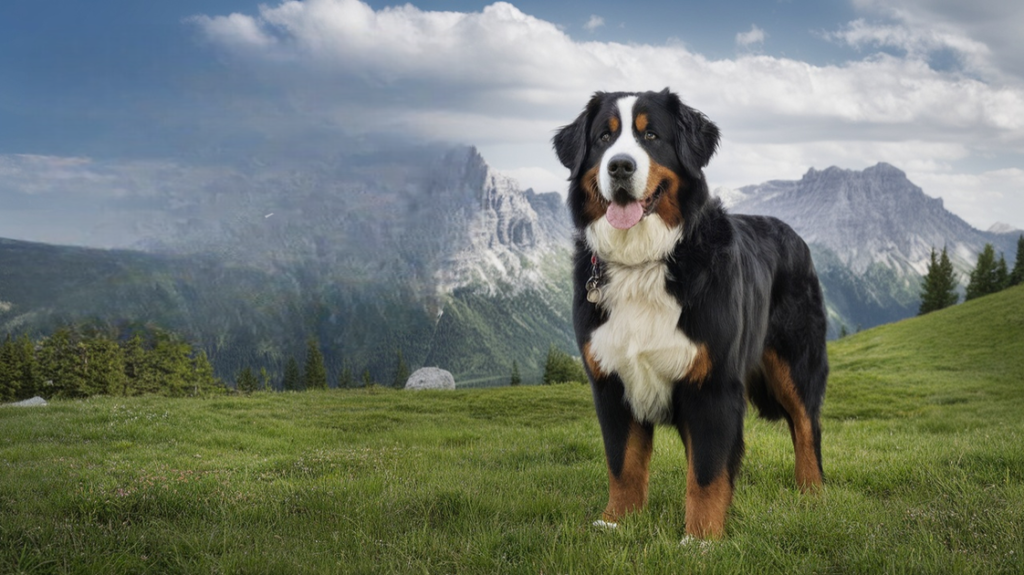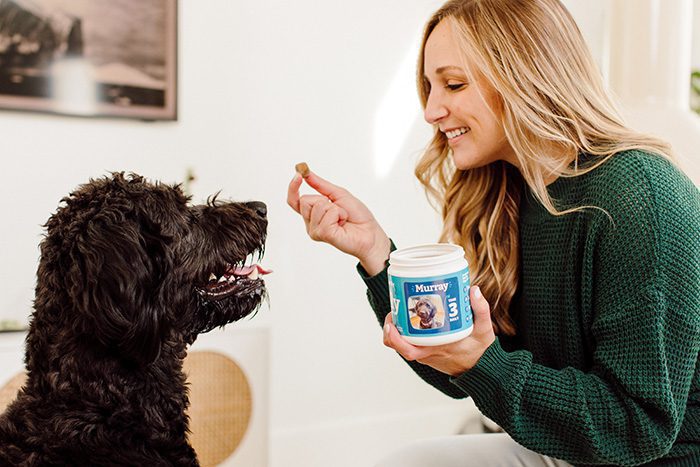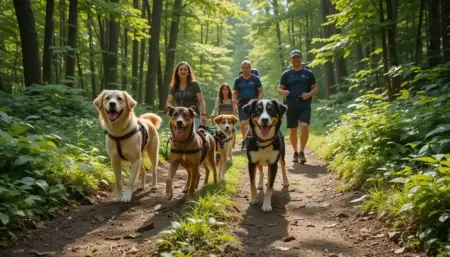The Bernese Mountain Dog, often called a Berner, is a gentle giant known for its stunning tri-colored coat and loving personality. Originating from the Swiss Alps, these dogs were originally bred as working companions, helping farmers herd cattle, pull carts, and protect their property. Today, Bernese Mountain Dogs are primarily beloved family pets, cherished for their loyalty and gentle nature. If you’re thinking about adding a Berner to your family, this guide will provide everything you need to know about this special breed.
Temperament and Personality: A Heart of Gold
Bernese Mountain Dogs are famous for their calm and affectionate temperament. They are known to be incredibly patient with children and generally get along well with other pets when properly socialized. Their loyalty to their families is unmatched, and they thrive on human companionship, often following their favorite humans around the house.
While Bernese Mountain Dogs have many positive traits, it’s essential to remember that they are sensitive dogs who respond best to positive reinforcement training. Harsh corrections or scolding can damage their confidence and lead to unwanted behaviors. They are also prone to separation anxiety when left alone for extended periods. Providing them with plenty of attention, interactive toys, and training to be comfortable alone can help alleviate this issue.

Living with a Bernese Mountain Dog: Care and Considerations
Bringing a Bernese Mountain Dog into your home is a significant commitment. Their unique needs and potential health concerns require attentive care and planning.
Exercise and Mental Stimulation: Keeping Your Berner Happy and Healthy
While not as high-energy as some other working breeds, Bernese Mountain Dogs still need daily exercise and mental stimulation to thrive. Aim for at least 30 minutes of moderate-intensity exercise each day. Walks, hikes, playtime in a fenced yard, and swimming are all great options.
However, don’t underestimate the importance of mental engagement. Bernese Mountain Dogs are intelligent dogs that need mental challenges to prevent boredom and potential behavioral issues. Puzzle toys, obedience training, learning tricks, and interactive games like hide-and-seek are excellent ways to keep their minds sharp.
Grooming Your Berner’s Luxurious Coat: A Labor of Love
The Bernese Mountain Dog’s thick, double coat is one of their most striking features, but it requires significant upkeep. Be prepared for heavy shedding year-round, with even more shedding during seasonal changes.
Regular brushing is essential to prevent mats and tangles, ideally several times a week or even daily. A de-shedding tool can be helpful during shedding seasons. Bathing every two to four weeks will keep their coat clean and healthy.
You should also pay attention to their ears, which can trap moisture and debris due to their floppy shape. Regular cleaning with a vet-approved solution can help prevent ear infections.
Nutritional Needs Throughout Life Stages: Feeding Your Gentle Giant
Feeding your Bernese Mountain Dog a high-quality diet is crucial for their overall health and longevity. As puppies, they need a large-breed formula that supports their controlled growth and helps prevent joint problems.
Adult Bernese Mountain Dogs should be fed a balanced diet twice daily. To reduce the risk of bloat, avoid elevated food bowls and consider using a slow feeder bowl. Monitor their weight closely and adjust their food intake based on their activity level to prevent obesity, which can strain their joints.
Senior Berners may require dietary modifications to address age-related health concerns. Consult your veterinarian for personalized recommendations.

Training a Bernese Mountain Dog: Patience and Positive Reinforcement
Bernese Mountain Dogs are intelligent and eager to please, making them relatively easy to train with the right approach. Their sensitivity means that positive reinforcement techniques, such as using treats, praise, and rewards, are most effective.
Start training and socialization early, as puppies, to help them develop good manners and confidence around different people, animals, and situations. Focus on essential commands like sit, stay, come, and leash walking. Due to their size, it’s particularly important to train them not to jump on people, which can be dangerous.
Be patient and consistent with your training efforts. Bernese Mountain Dogs can be slow to mature mentally, so they might retain their puppy-like energy and behavior for longer than some other breeds.
Bernese Mountain Dog Health: Understanding the Risks
One of the most heartbreaking aspects of owning a Bernese Mountain Dog is their shorter lifespan. On average, they live for 7 to 10 years, which is less than many other breeds. They are also predisposed to certain health conditions, including:
- Cancer: Bernese Mountain Dogs have a high incidence of various cancers, including histiocytic sarcoma.
- Hip and Elbow Dysplasia: These conditions are common in large breeds and can cause joint pain, lameness, and arthritis.
- Bloat (Gastric Dilatation-Volvulus): This life-threatening condition occurs when the stomach twists, trapping gas and cutting off blood flow.
- Other Health Concerns: Bernese Mountain Dogs can also be prone to eye problems, heart disease, autoimmune disorders, and von Willebrand’s disease (a bleeding disorder).
Regular veterinary checkups, a healthy diet, and appropriate exercise can help mitigate some of these risks. Genetic testing can also help identify potential health concerns and guide breeding decisions.

Finding a Bernese Mountain Dog: Adoption vs. Breeder
If you’ve decided that a Bernese Mountain Dog is the right breed for you, you have two main options for finding your new furry friend:
Adopting a Berner in Need
Adoption is a wonderful way to give a second chance to a deserving dog. Many Bernese Mountain Dogs end up in shelters and rescue organizations through no fault of their own. By adopting, you not only gain a loving companion but also help reduce the number of dogs in need of homes.
Choosing a Responsible Breeder
If you’re looking for a puppy, it’s crucial to find a reputable breeder who prioritizes the health and well-being of their dogs. Responsible breeders:
- Screen their breeding dogs for genetic health conditions.
- Provide proper socialization and care for puppies.
- Are knowledgeable about the breed and can answer your questions thoroughly.
Be wary of puppy mills or backyard breeders who often prioritize profit over the welfare of their dogs. These puppies might be more susceptible to health and behavioral problems.
Is a Bernese Mountain Dog Right for You?
Before welcoming a Bernese Mountain Dog into your family, consider whether your lifestyle, living situation, and resources align with their needs:
- Space: Bernese Mountain Dogs are large dogs that need ample space to move around comfortably. A home with a fenced yard is ideal.
- Time Commitment: Berners require daily exercise, grooming, training, and plenty of attention. They thrive on human interaction and are not suited to being left alone for long periods.
- Financial Resources: Owning a Bernese Mountain Dog comes with significant costs, including food, vet care, grooming, and supplies. Their predisposition to health problems can also lead to higher veterinary expenses.
- Emotional Preparedness: Be prepared for their shorter lifespan. Saying goodbye to a beloved Berner can be emotionally challenging.
A Lifetime of Love with a Berner
Despite the challenges, owning a Bernese Mountain Dog can be an incredibly rewarding experience. Their gentle nature, unwavering loyalty, and affectionate personality make them exceptional companions. If you can provide them with the care, attention, and love they need, a Berner will enrich your life with unconditional joy and companionship.
FAQs
Are Bernese Mountain Dogs good with kids?
Yes, Bernese Mountain Dogs are generally very good with children. They are known for their patience and gentle nature, making them suitable playmates for kids. However, as with any dog breed, supervision is always necessary, especially with young children.
How much do Bernese Mountain Dogs shed?
Bernese Mountain Dogs are heavy shedders year-round. They have a thick double coat that requires regular brushing to manage the shedding. Be prepared for fur on your clothes and furniture.
Do Bernese Mountain Dogs bark a lot?
Bernese Mountain Dogs can be vocal, especially when they sense something unusual or feel the need to protect their family. They might bark to alert you to visitors or other perceived threats. Early training and socialization can help manage their barking tendencies.
Are Bernese Mountain Dogs easy to train?
Bernese Mountain Dogs are intelligent and eager to please, making them generally receptive to training. However, they are sensitive dogs and respond best to positive reinforcement methods. Patience and consistency are key to successful training with this breed.
How much exercise does a Bernese Mountain Dog need?
Bernese Mountain Dogs need at least 30 minutes of moderate-intensity exercise every day. They enjoy walks, hikes, and playtime in a fenced yard. Mental stimulation is also essential for this intelligent breed, so provide them with puzzle toys, training sessions, and interactive games.
Conclusion
The Bernese Mountain Dog is a large, loving, and loyal breed that can bring immense joy to a family. Their gentle nature and affection for children make them ideal companions. However, potential owners must be aware of their shorter lifespan and predisposition to certain health conditions. Proper care, nutrition, exercise, training, and regular veterinary attention are crucial for ensuring a Bernese Mountain Dog’s well-being and happiness. Before bringing a Berner into your life, carefully assess your resources and commitment level to meet their specific needs.









